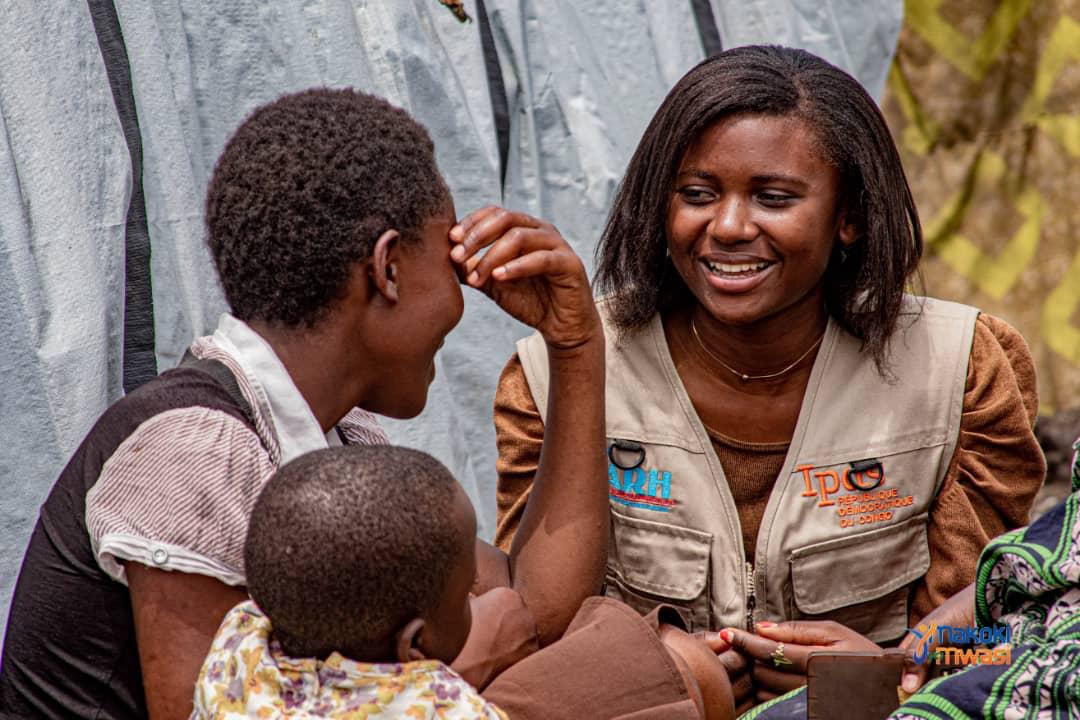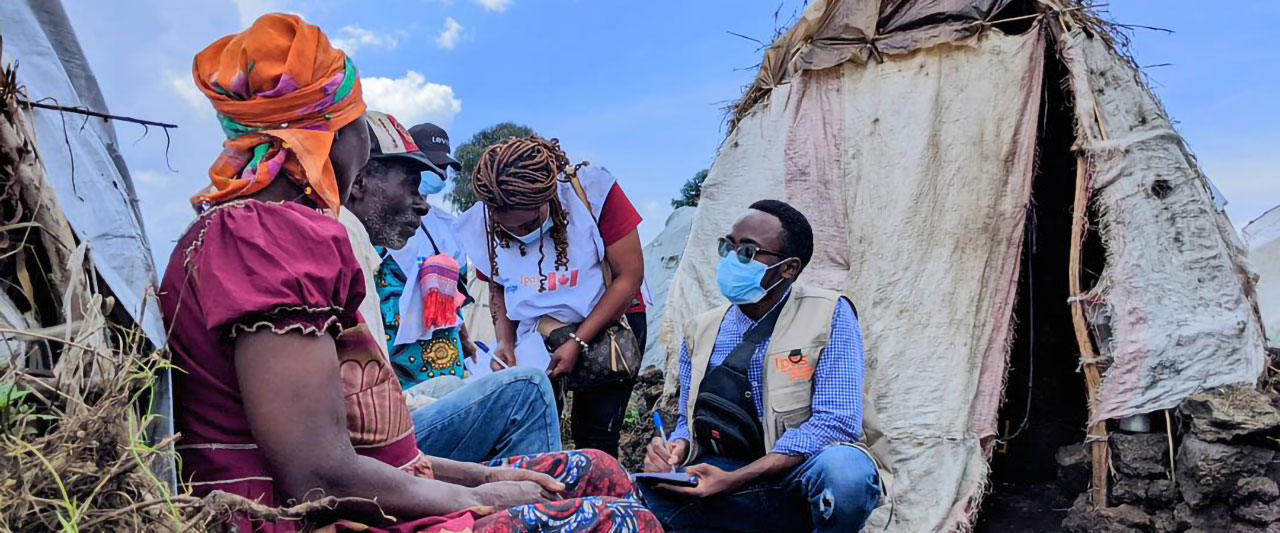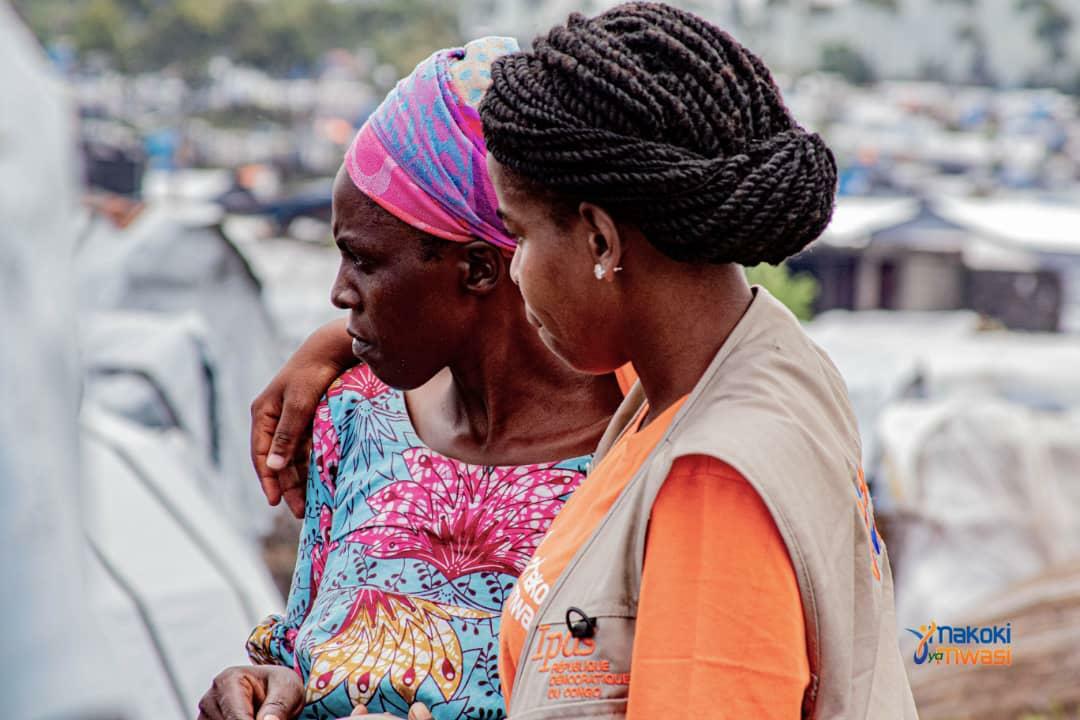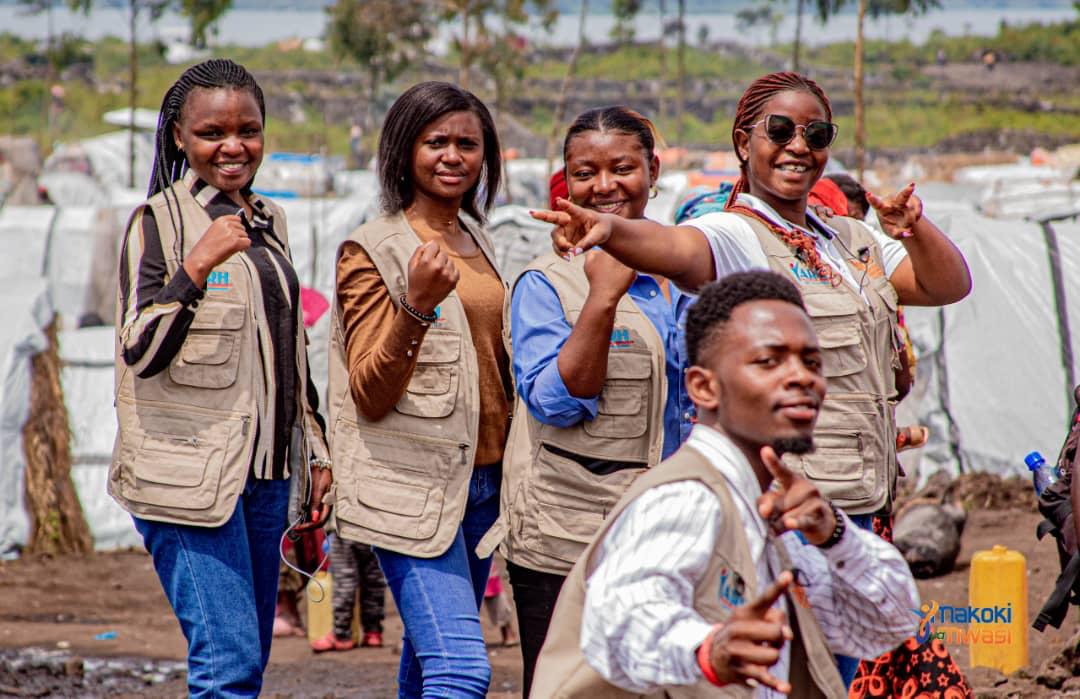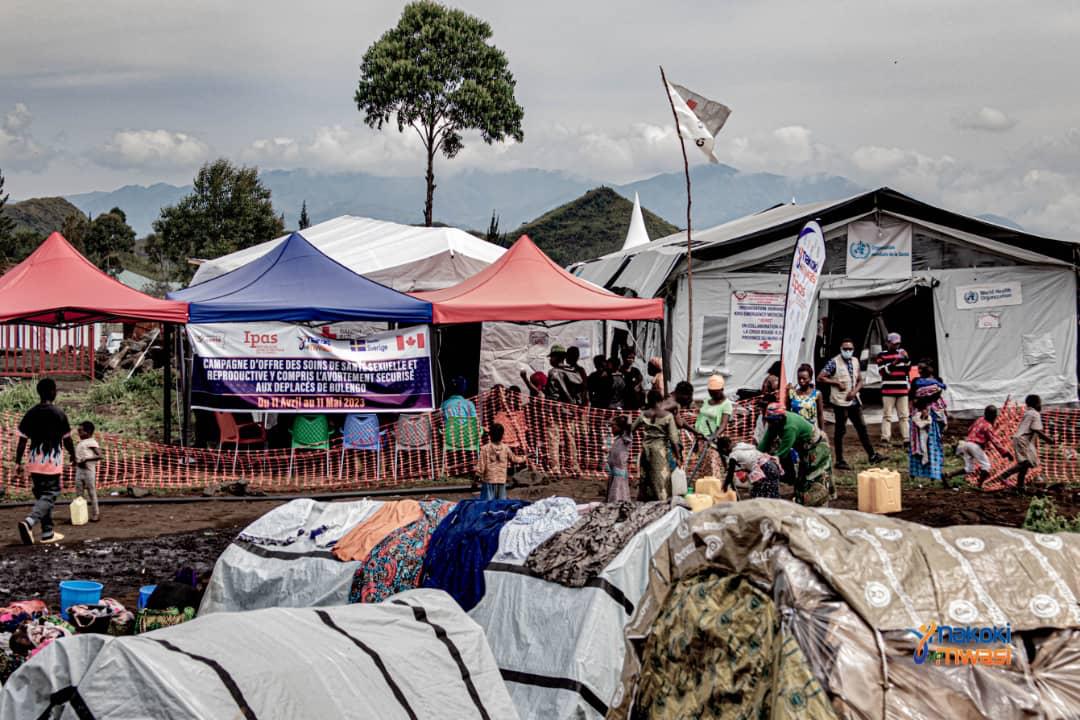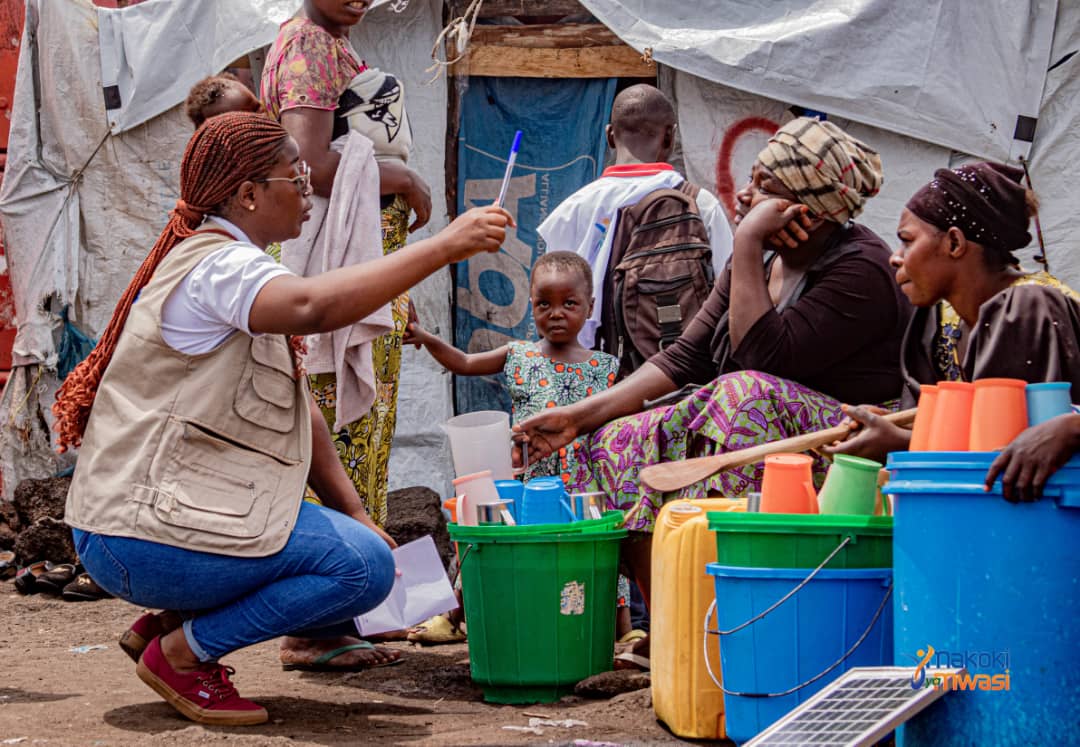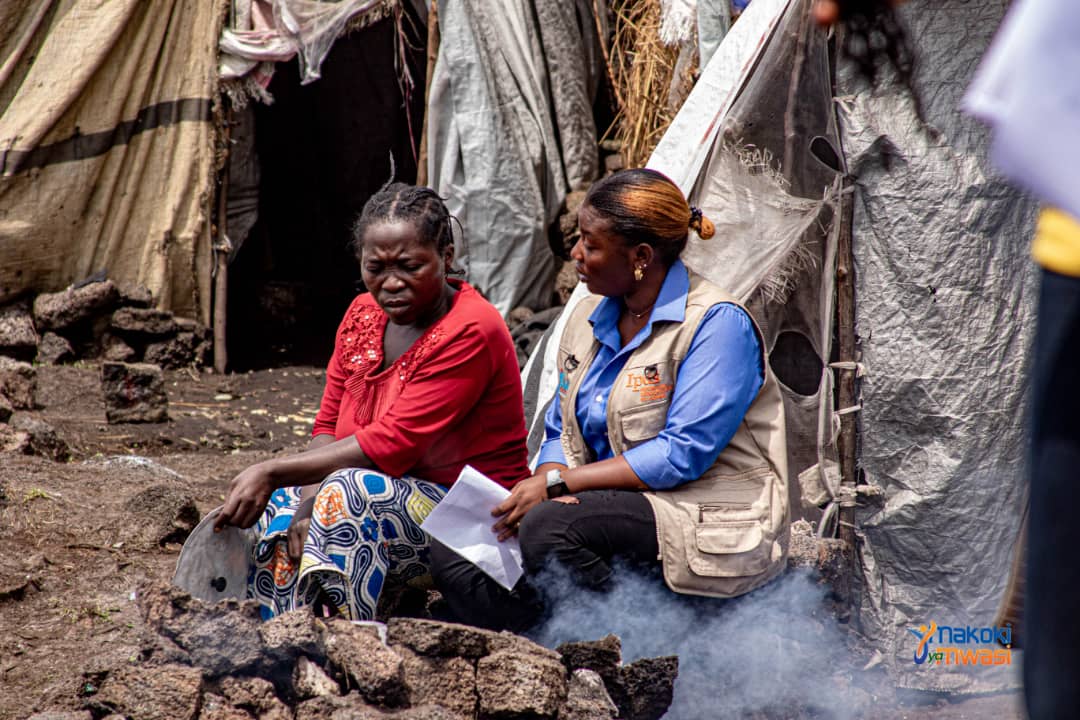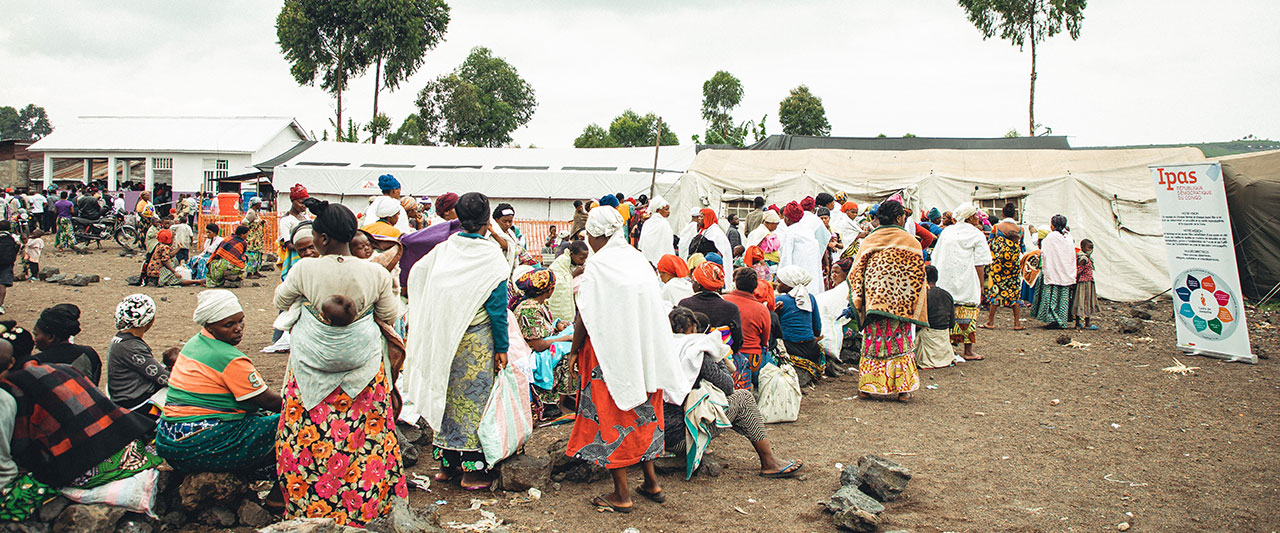No matter the cause, humanitarian crises often mean an increase in sexual and reproductive health needs—yet access to safe abortion remains one of the most forgotten of those needs. Ipas Democratic Republic of Congo is making sure that access to abortion is included in humanitarian aid response to the devastating armed conflict in North Kivu.
North Kivu is in the eastern region of the Democratic Republic of Congo (DRC), an area marked by extremely violent conflict. Despite all diplomatic efforts, clashes between Congolese troops and an armed rebel group have displaced thousands of people who have been forced to flee their homes to take refuge in makeshift camps. This instability has led to the complete collapse of the health system and contributed to a precarious health situation—with women, girls and children being the most affected.
Humanitarian response efforts to the region struggle to meet many vital necessities, made more difficult by insufficient resources and a complex logistical and security context. This often leads to the neglect of other basic needs, including sexual and reproductive health. To address this gap, Ipas DRC took an integrated approach to provide sexual and reproductive health care to displaced women and girls sheltering at the Bulengo camp. With local partners and the support of the National Reproductive Health Program of DRC, Ipas set up a one-stop center in the camp to provide medical management of gender-based sexual violence and sexually transmitted infections, comprehensive abortion care and contraception services for a full month in 2023.
Sexual and reproductive health care was provided in the mobile clinic set up in the camp, where around 100 people were treated every day.
people received sexual and reproductive health services
People treated for urogenital infections
People received family planning information
%
People served were women
People received comprehensive abortion care
Survivors of sexual violence treated for physical and emotional trauma
Health professionals: A support for women’s care
Ipas has set up a community hospital referral network for the camp’s inhabitants to raise their awareness and put them in touch with services. When psychological support is needed for victims of sexual abuse and violence and those suffering trauma from the precarious living conditions in the camp, the referral network can connect them to trusted resources such as the Doctors Without Borders clinic, whose package of care for survivors of gender-based violence includes additional resources for those in need.
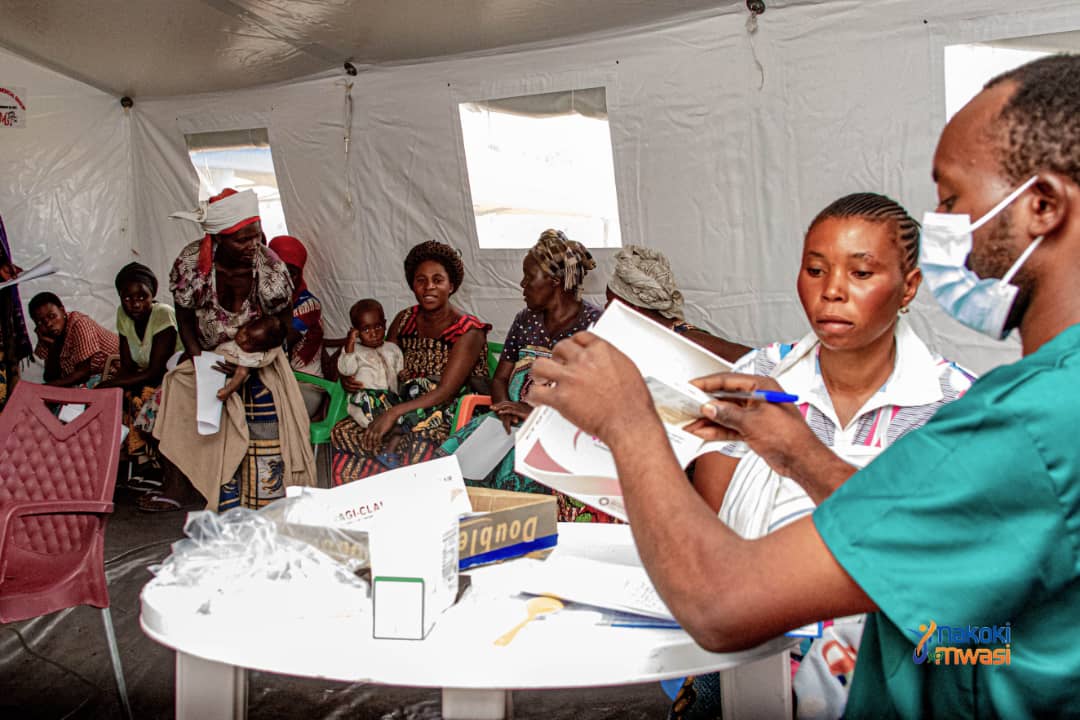
One month’s campaign has shown that access to safe abortion services is essential for internally displaced people, and in the case of large-scale displacement, safe abortion care must be available to avoid unnecessary death and injury from abortion with unsafe methods. For women to enjoy their sexual and reproductive health rights and make informed decisions, the role of the community is essential.
The fight against gender-based violence requires the commitment of all stakeholders. The needs are huge and the responses few. That’s why Ipas DRC will continue to work with the National Reproductive Health Program of DRC and local stakeholders to meet the sexual and reproductive health and safe abortion needs of women and girls—undeterred by the context of armed conflict.
